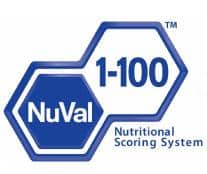I’ve gotten a lot of questions from listeners about fasting: Is it safe? Is it beneficial? How long should one fast? How often?
This article is also available as a podcast:
What are the Health Benefits of Fasting?
People have fasted as a spiritual practice since ancient times. Today, there are a lot of people claiming that fasting also has a lot of health benefits. And, in fact, research shows that short fasts, lasting anywhere from 20 to 36 hours can in fact reduce some risks for heart disease and diabetes–and maybe even cancer.
As I explained in episodes #31 and #32, going without food for several hours does NOT cause your metabolism to slow down nor does it wreak havoc with your blood sugar. Short fasts actually improve insulin sensitivity and this is pretty big deal. When your cells are sensitive to the effects of insulin, they do a much better job modulating your blood sugar levels after meals and this makes life a lot easier for your poor old pancreas. Loss of insulin sensitivity is a risk factor for both heart disease and diabetes.
Short fasts also reduce oxidative stress and inflammation in cells. Many theorize that this helps prevent and repair DNA damage that could otherwise develop into cancer. There’s even some research suggesting that fasting slows the little clocks that tick inside our mitochondria and trigger senescence, or aging. In other words, fasting might help us live longer by keeping our organs youthful.
I want to emphasize that this is all still very much in the theoretical and experimental phase, but there are a lot of people who have embraced intermittent fasting as an anti-aging strategy. Some of them fast one day a week or one weekend a month. Others fast every other day. If you’re curious about how this works, I’ve put a link in the show notes to an interesting blog about one man’s experience with intermittent fasting.
Interestingly, you can get the metabolic benefits of fasting even if you make up for the lost calories by eating more when you’re not fasting. It doesn’t seem to be about eating less as much as it’s about going longer between meals.
Fasting for Weight Loss
Intermittent fasting doesn’t necessarily lead to weight loss, but it often does. Research shows that when people skip a meal or stop eating for an entire day, they do tend to eat more at the next meal. But even if they allow themselves to eat as much as they want, they don’t quite make up for the calories they missed.
I know that flies in the face of everything you hear, but skipping meals can actually be an effective weight loss strategy. I’ll post a link in the show notes to a summary of some research on this as well as a link to an article I wrote on the pros and cons of fasting as a weight control strategy.
How to Fast Safely
Fasting is not for everyone. Though some people describe feeling euphoric and energized, others feel cranky and sick. And if you’re pregnant, diabetic, severely underweight, recuperating from surgery, or have a serious medical condition, you really shouldn’t fast without close medical supervision. In fact, those with medical conditions are often exempted from religious fasting obligations.
If none of that applies to you and you think you’d like to try an occasional fast, here are some guidelines on how to do it safely.
- Keep it short. You don’t have to fast for days at a time to get the metabolic or weight loss benefits. As some of the studies I’ve posted demonstrate, skipping a meal every other day is enough to produce modest weight loss. Fasting for as little as 20 hours at a time is enough to improve insulin sensitivity and other metabolic functions. I don’t recommend going for longer than 36 hours.
- Stay hydrated. Those fasting for Ramadan and Yom Kippur usually go without water throughout their fasts. Although no lasting harm appears to come from it, they do often end up somewhat dehydrated. That’s why Ramadan feasts traditionally begin with fruit, soups, and other hydrating foods. If you are not fasting for religious reasons, by all means drink plenty of water during your fast.
- Forego vigorous exercise while fasting. A brisk walk is fine but it’s not a good idea to run a marathon or swim the English Channel on a day when you’re not eating as much as usual.
- Avoid operating heavy machinery. Don’t operate any heavy machinery–such as automobiles– until you know how feel while fasting. In Muslim countries, car accidents tend to go up during Ramadan. Then again, that may not be all due to the fasting. A good bit of it may be due to sleep deprivation. Families and friends often gather to break the fast and visit until the wee hours—then get up early for another meal before the fast begins again.
- Optimize your nutrition. When you’re not fasting be sure to eat wholesome, nutritious foods. If you’re going to eat less, the nutritional quality of what you do eat becomes that much more important. Fasting for a day and then pigging out on junk food the next day is not a way to move your health agenda forward.
- Don’t go too low. If your weight starts to dip below your healthy weight range, you’re fasting too often and may be at risk of nutritional deficiencies. Not sure what your healthy weight range is? I’ll put a link in the show notes to a calculator.
RESOURCES:
Benefits of fasting for weight control and disease prevention (U.S. News and World Report)
Effect of intermittent fasting on insulin action (Journal of Physiology)
Effects of intermittent fasting on cardiovascular health (Annals of Nutrition and Metabolism)
A Year of Intermittent Fasting (Blog of one man’s experience)
Pros and Cons of Modified Fasting for Weight loss (Nutrition Over Easy Blog)
What’s a healthy weight? (BMI Calculator)
Originally published at QuickandDirtytips.com
 Q. My local supermarket has added ‘NuVal’ nutrition scores to most of the labels in the store. How accurate do you think they are for judging the healthfulness of food? I can’t find details about how the NuVal score is calculated but sodium seems to be a factor. A low sodium version of the same product will score higher.
Q. My local supermarket has added ‘NuVal’ nutrition scores to most of the labels in the store. How accurate do you think they are for judging the healthfulness of food? I can’t find details about how the NuVal score is calculated but sodium seems to be a factor. A low sodium version of the same product will score higher.

 Q. I tend to get food poisoning about once a year. Often, however, I am the only person in a group that gets it. Is there anything I can eat that would make my GI tract more resistant? Would probiotics help?
Q. I tend to get food poisoning about once a year. Often, however, I am the only person in a group that gets it. Is there anything I can eat that would make my GI tract more resistant? Would probiotics help? Q. Taught by my grandmother, I practice the time-honored tradition of eating spring greens: dandelions, burdock, stinging nettles, pigweed, lamb’s quarters, plantain, shepherd’s purse, garlic mustard, chickweed, cleavers, and so on. What does modern nutrition have to say about this? Are these greens truly “blood cleansing” or “liver cleansing?
Q. Taught by my grandmother, I practice the time-honored tradition of eating spring greens: dandelions, burdock, stinging nettles, pigweed, lamb’s quarters, plantain, shepherd’s purse, garlic mustard, chickweed, cleavers, and so on. What does modern nutrition have to say about this? Are these greens truly “blood cleansing” or “liver cleansing?